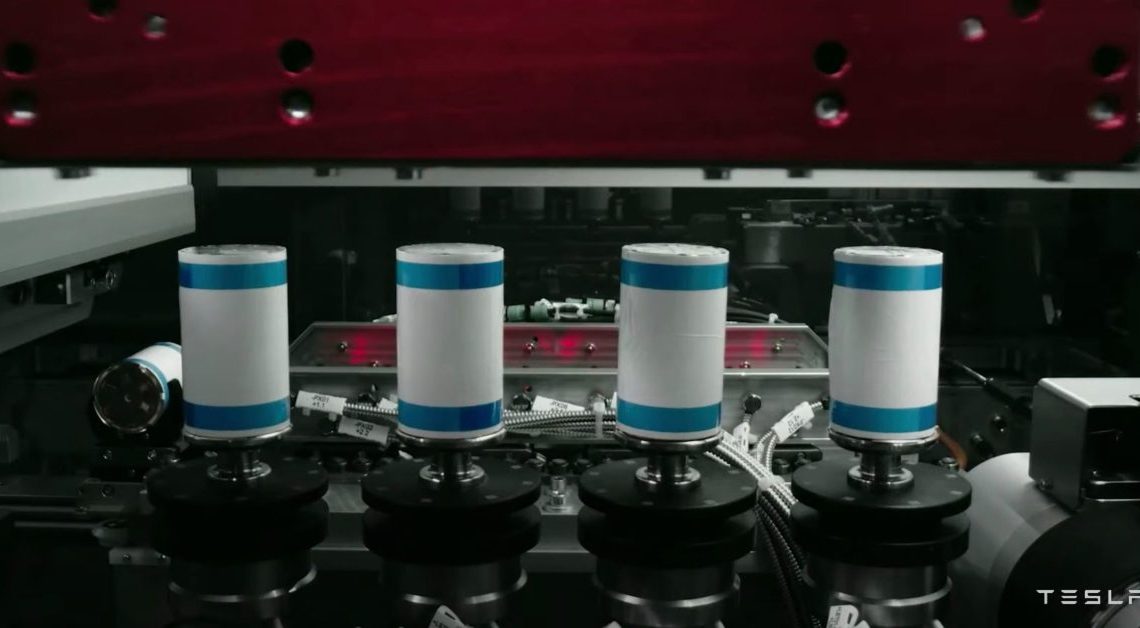
Two men have been charged in New York for trying to sell Tesla battery manufacturing trade secrets to undercover agents.
The office of the U.S. attorney for the Eastern District of New York released a statement today about a new complaint filed against two individuals who tried to sell battery manufacturing trade secrets owned by a US company.
The US attorney wrote in the statement:
A complaint was unsealed today in federal court in Brooklyn charging Klaus Pflugbeil, a resident of the People’s Republic of China (the “PRC” or “China”) and Canadian national, and Yilong Shao, a Chinese national, with conspiring to send trade secrets that belonged to a leading U.S.-based electric vehicle company (“Victim Company-1”). Pflugbeil and Shao are operators of a PRC-based business (“Business-1”) that sold technology used for the manufacture of batteries, including batteries used in electric vehicles. The defendants built Business-1 using Victim Company-1’s sensitive and proprietary information, and even marketed their business as a replacement for Victim Company-1’s products. Pflugbeil was arrested this morning after he sent multiple Victim Company-1 trade secrets to an undercover agent and traveled to Nassau County for a meeting with what he believed to be Long Island-based businesspeople, who in reality were undercover law enforcement agents. Pflugbeil is scheduled to make his initial appearance today before United States Magistrate Judge Peggy Kuo. His co-defendant Shao remains at large.
In the complaint, the “victim company” is only referred to as a “U.S.-based leading manufacturer of battery-powered electric vehicles and battery energy systems”, but it’s easy to confirm that it is Tesla when you find out
The US attorney’s office explained:
Victim Company-1 is a U.S.-based leading manufacturer of battery-powered electric vehicles and battery energy systems. In 2019, Victim Company-1 acquired a Canada-based manufacturer of automated, precision dispensing pumps and battery assembly lines (the “Canadian Manufacturer”). Prior to its purchase by Victim Company-1, the Canadian Manufacturer sold battery assembly lines to customers who manufactured alkaline and lithium-ion batteries for consumer use. The battery assembly lines contained or utilized a proprietary technology now owned by Victim Company-1: continuous motion battery assembly (the “Battery Assembly Trade Secret”). The proprietary technology provided a substantial competitive advantage to Victim Company-1 in the battery manufacturing process. Victim Company-1 spent at least $13 million developing the Battery Assembly Trade Secret.
Both the description of the company and the timing match Tesla’s acquisition of Canada’s Hibar Systems.
The two defendants in the complaint worked for Hibar and after Tesla’s acquisition, they set up their own company to produce and sell systems based on technology now owned by Tesla.
According to the complaint, they went as far as being advertisements that explicitly said they were selling Tesla parts:
In or about July 2020, Pflugbeil and Shao opened Business-1, which has since expanded to locations in China, Canada, Germany and Brazil. Business‑1 makes the same precision dispensing pumps and battery assembly lines that Victim Company-1 manufactured using its proprietary technology. Business-1 is marketed by Pflugbeil as an alternative source for the sale of products that rely upon Victim Company-1 trade secrets, publishing online advertisements that state, for example, “Are you looking for [Victim Company-1] Metering pumps and spare parts? Look no further.”
Undercover agents made contact with the two individuals at a trade show and claimed that they wanted to buy a battery production line from them.
The agents were able to get the two defendants to send them a proposal that reportedly included Tesla’s “battery assembly trade secrets”:
On or about September 11, 2023, undercover agents attended a trade show for the packaging and processing industries (the “Trade Show”) in Las Vegas, Nevada. The undercover agents posed as businesspeople who were interested in purchasing a battery assembly line from Business-1 to manufacture batteries at a facility on Long Island. The undercover agents were introduced to Shao at the trade show and later to Pflugbeil via email. Subsequently, on or about November 17, 2023, Pflugbeil sent, via email, a detailed 66-page technical documentation proposal (the “Proposal”) to an undercover agent (“UC-1”) while UC-1 was in the Eastern District of New York. The Proposal notes, “this technical documentation package contains [Business-1] proprietary information which must be kept confidential.” In reality, the Proposal contained Battery Assembly Trade Secret information belonging to Victim Company-1: at least half a dozen drawings Pflugbeil used in the Proposal and sent to UC-1 were, in fact, Victim Company-1’s information related to the Battery Assembly Trade Secret.
If convicted, Pflugbeil faces up to 10 years in prison. Again, Shao is still at large.
Author: Fred Lambert
Source: Electrek



